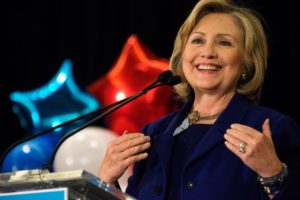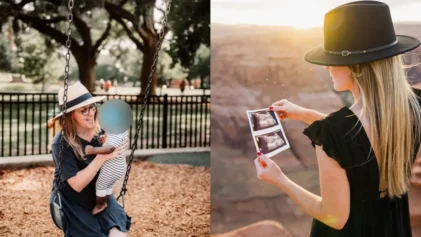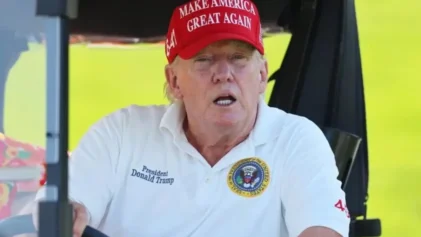
Democratic presidential candidate Hillary Clinton. YouTube.
Former Secretary of State Hillary Clinton is positive she will secure the Democratic nomination for the 2016 presidential race.
“I will be the nominee for my party,” she told CNN’s Chris Cuomo in an interview Thursday. “That is already done, in effect. There is no way that I won’t be.”
The front-runner currently has 1,768 of the 2,383 delegates needed to win, making it nearly impossible for opponent Bernie Sanders to eclipse Clinton without sweeping victories in each of the remaining primaries.
But Sanders made it clear he intended to soldier on during a rousing election night speech Tuesday.
“We are in till the last ballot is cast!” he told supporters at the California rally.
The state senator easily bested Clinton in the Oregon primary that night, while Clinton won Kentucky by just half a percentage point, according to CNN.
The Democratic Party will hold its convention in Philadelphia the week of July 25, 2016. Though present-day presidential conventions have become mostly pomp and circumstance, their true purpose, to officially confirm the party representative, is not lost on Sanders. Superdelegates, those distinguished party officials unbound to any one candidate, could potentially swing the nomination in his favor.
The party has become increasingly divided in the last stretch of this primary season, with the Sanders campaign claiming bias and inconsistencies in state voting rules.
Sanders came under fire last week when chaos erupted at the Nevada State Democratic Convention. The Associated Press reported Sanders supporters threw chairs, heckled speakers and at one point, issued death threats to state chairwoman Roberta Lange. The supporters alleged state Democrats were using underhanded tactics to favor Clinton over Sanders and denied them seating at the convention.
The Nevada party even filed a complaint against the Sanders campaign, accusing his delegates of attending solely for the purpose of inciting a “street-fight,” rather than contributing to an “orderly political party process.”
Multiple Democrats called on Sanders to unequivocally condemn the violence.
He did three days later in a lengthy statement posted to his official website, however he echoed the protestors’ allegations of fraudulent activity.
“The Democratic leadership used its power to prevent a fair and transparent process from taking place,” the Sanders statement said.
“If the Democratic Party is to be successful in November, it is imperative that all state parties treat our campaign supporters with fairness and the respect that they have earned,” it continued.
The Sanders camp immediately released a statement in response to Clinton’s CNN comments.
“In the past three weeks voters in Indiana, West Virginia and Oregon respectfully disagreed with Secretary Clinton,” spokesman Michael Briggs said. “We expect voters in the remaining nine contests also will disagree. And with almost every national and state poll showing Sen. Sanders doing much, much better than Secretary Clinton against Donald Trump, it is clear that millions of Americans have growing doubts about the Clinton campaign.”
Clinton stressed the importance of unifying the party under one candidate. A lesson she told Cuomo she learned for herself during the equally intense 2008 Democratic primary race with Barack Obama.
“That’s why the lesson of 2008 — which was a hard-fought primary, if you remember — is so pertinent here. Because I did my part, but so did (then-) Sen. Obama,” she said. “He made it clear he welcomed people who had supported me. He made it very clear.”
Clinton said a joint appearance in New Hampshire following her concession helped signal her total support of Obama to supporters, who eventually fell in line.
“We went to Unity, New Hampshire, together, appeared together, spoke together, and made it absolutely obvious that I was supporting him, that he was grateful for that support.”


